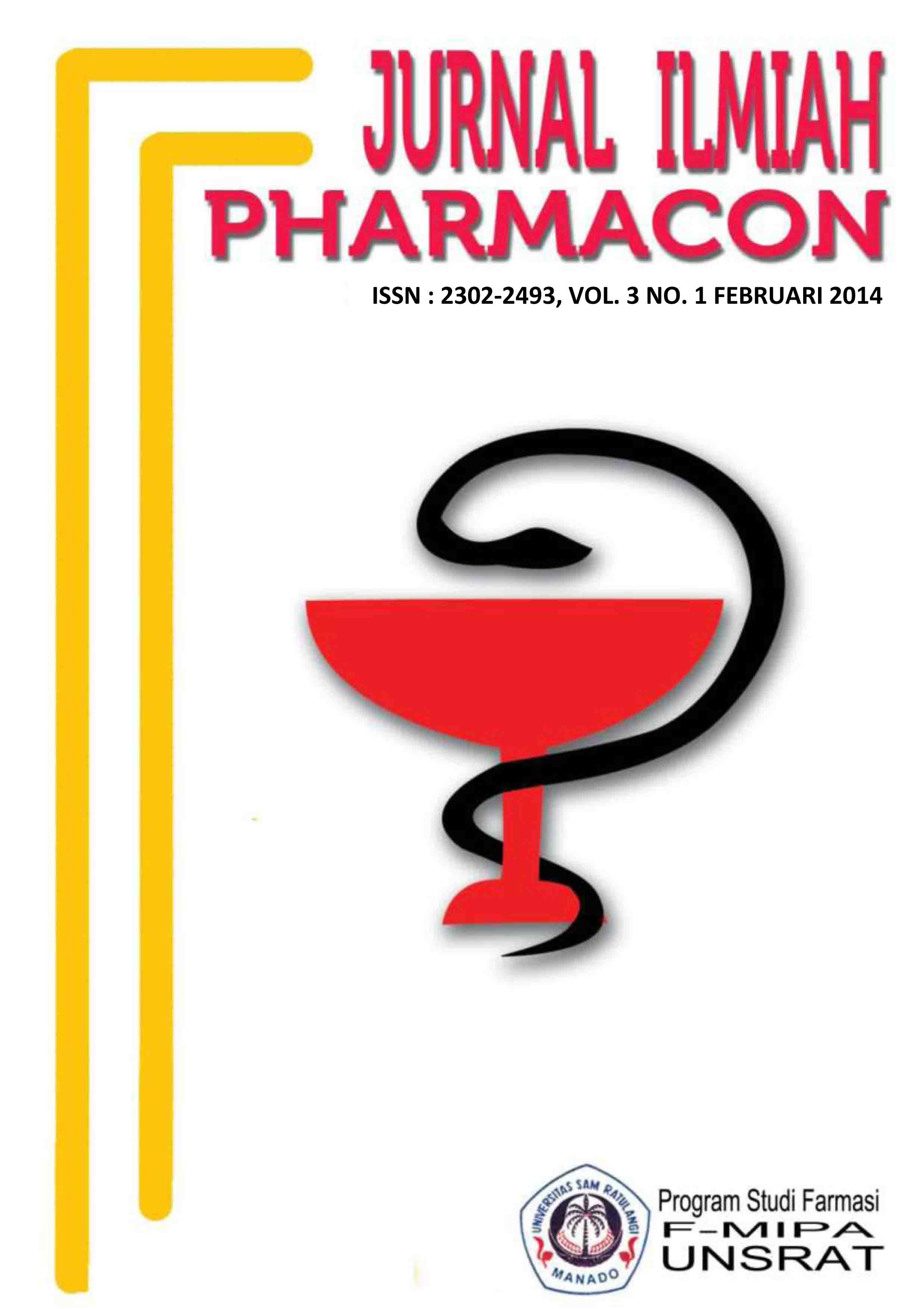UJI EFEK ANTIINFLAMASI EKSTRAK ETANOL KULIT BUAH MAHKOTA DEWA (Phaleria macrocarpa Boerl.) TERHADAP EDEMA KAKI TIKUS PUTIH JANTAN
DOI:
https://doi.org/10.35799/pha.3.2014.3890Abstract
This study to prove the ethanol extract of the Mahkota Dewa skin fruit has antiinflammatory effects on foot edema white male rats by induced 5 % solution of white egg and determine ethanol extract dose from Mahkota Dewa Skin Fruit that most effective for decrease the volume of foot edema white male rats induced 5 % solution of white egg . This study used 15 white male rats and divided into 5 groups, negative control group (aquadest), positive control group (natrium diclofenac), treatment group (ethanol extract of Mahkota Dewa Skin Fruit dose 140mg/200gBB , 280mg/200gBB , 420mg/200gBB . after oral gived, the rat foot edema made by induced of a 5% solution of white egg . Rat foot Volumes measured every 1 hour for 7 hours . Based on the results of the study , the ethanol extract of Mahkota Dewa Skin Fruit with a dose 140mg/200gBB have antiinflammatory Effects 16,91 %, 280mg/200gBB by 18.87 % and 420mg/200gBB by 19.09 % and the most effective dose to decrease the volume of foot edema white male rats from ethanol extract of Mahkota Dewa Skin Fruit at doses 420mg/200gBB that have antiinflammatory Effects 19,09 %.
Â
Key words : Antiinflammatory, edema, Phaleria macrocarpa BoerlDownloads
How to Cite
Issue
Section
License
Authors who publish with this journal agree to the following terms:
- Authors retain copyright and grant the journal right of first publication with the work simultaneously licensed under a Creative Commons Attribution-NonCommercial 4.0 International License that allows others to share the work with an acknowledgement of the work's authorship and initial publication in this journal.
- Authors are permitted and encouraged to post their work online (e.g., in institutional repositories or on their website) prior to and during the submission process, as it can lead to productive exchanges, as well as earlier and greater citation of published work (See The Effect of Open Access)










